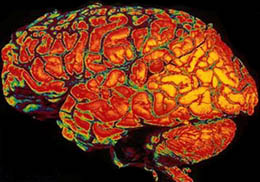
Link
Antipsychotic drugs don't work, are causing a brain damage epidemic and almost triple the risk of dying early, a new book claims. Yet the mental health establishment, as it did with Prozac, is failing to take the evidence seriously.
Historically, whatever dissenters thought has been ignored. So, it appears, have new studies which indicate that antipsychotics do not work long-term. For example, a US study last year in the Journal of Nervous and Mental Disease reported that people diagnosed with schizophrenia and not taking antipsychotics are more likely to recover than those on the drugs. The study was on 145 patients, and researchers reported that, after 15 years, 65% of patients on antipsychotics were psychotic, whereas only 28% of those not on medication were psychotic. A staggering finding, surely? So where were the mainstream media yelps of "breakthrough in schizophrenia treatment". Not a squeak.
Moncrieff's second point is that the psychiatric establishment, underpinned by the pharmaceutical industry, has glossed over studies showing that antipsychotics cause extensive damage - the most startling being permanent brain atrophy (brain damage) or tardive dyskinesia. As in Parkinson's Disease, patients suffer involuntary, repetitive movements, memory loss and behaviour changes. Antipsychotics cause atrophy within a year, Moncrieff says. She accuses her colleagues of risking creating an "epidemic of iatrogenic brain damage".
Moncrieff is a hard-nosed scientist, so she is respectfully reserved. But gross scientific misconduct is her accusation. "It is as if the psychiatric community can not bear to acknowledge its own published findings," she writes.
...
Psychiatrists should be involved in "shared decision-making" with patients, and would have to go to civil courts to argue their case for compulsory treatment. "Psychiatry would be a more modest enterprise," writes Moncrieff, "no longer claiming to be able to alter the underlying course of psychological disturbance, but thereby avoiding some of the damage associated with the untrammelled use of imaginary chemical cures."
The mental health establishment should learn from the Prozac story and pay attention. It's about time.





